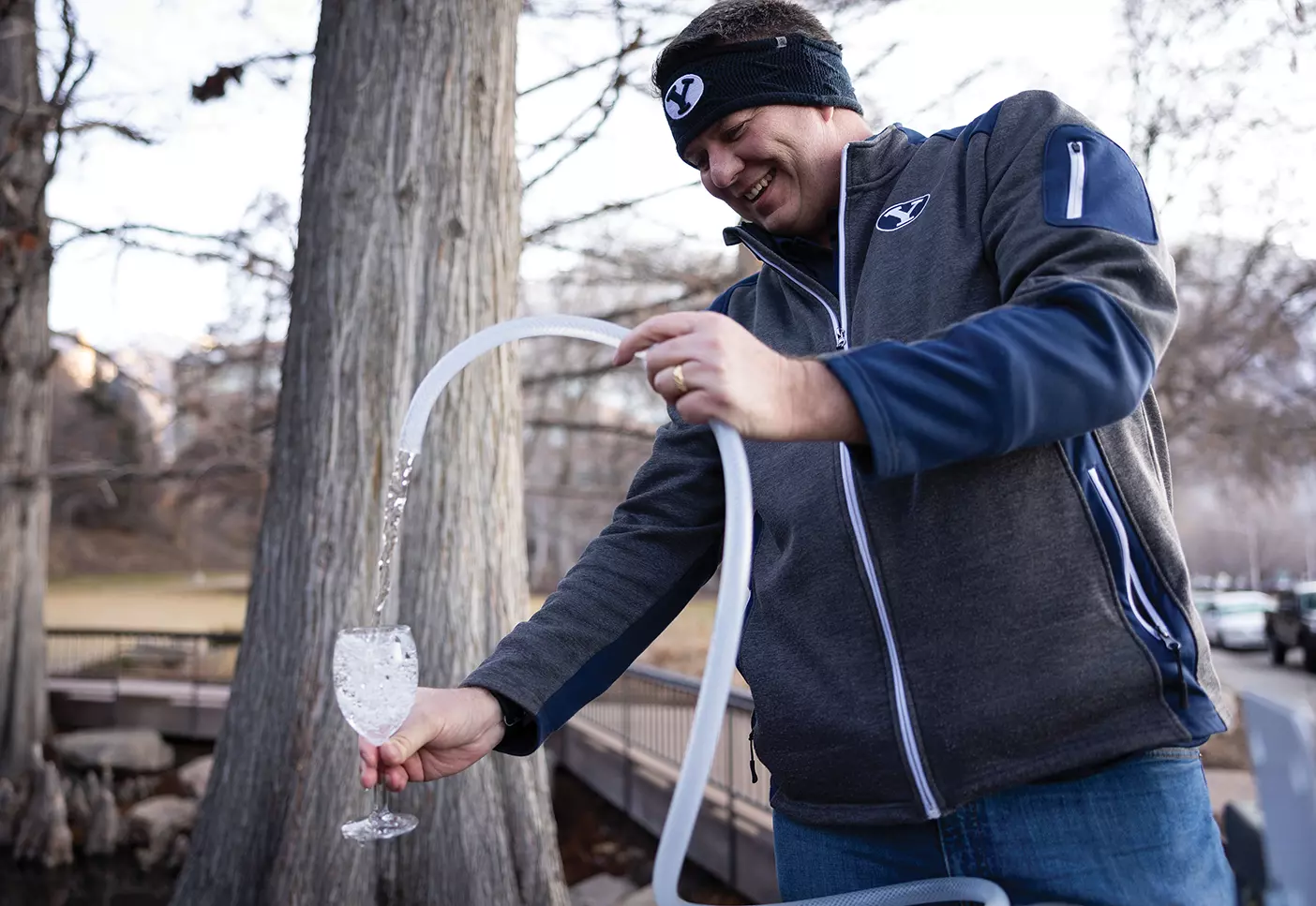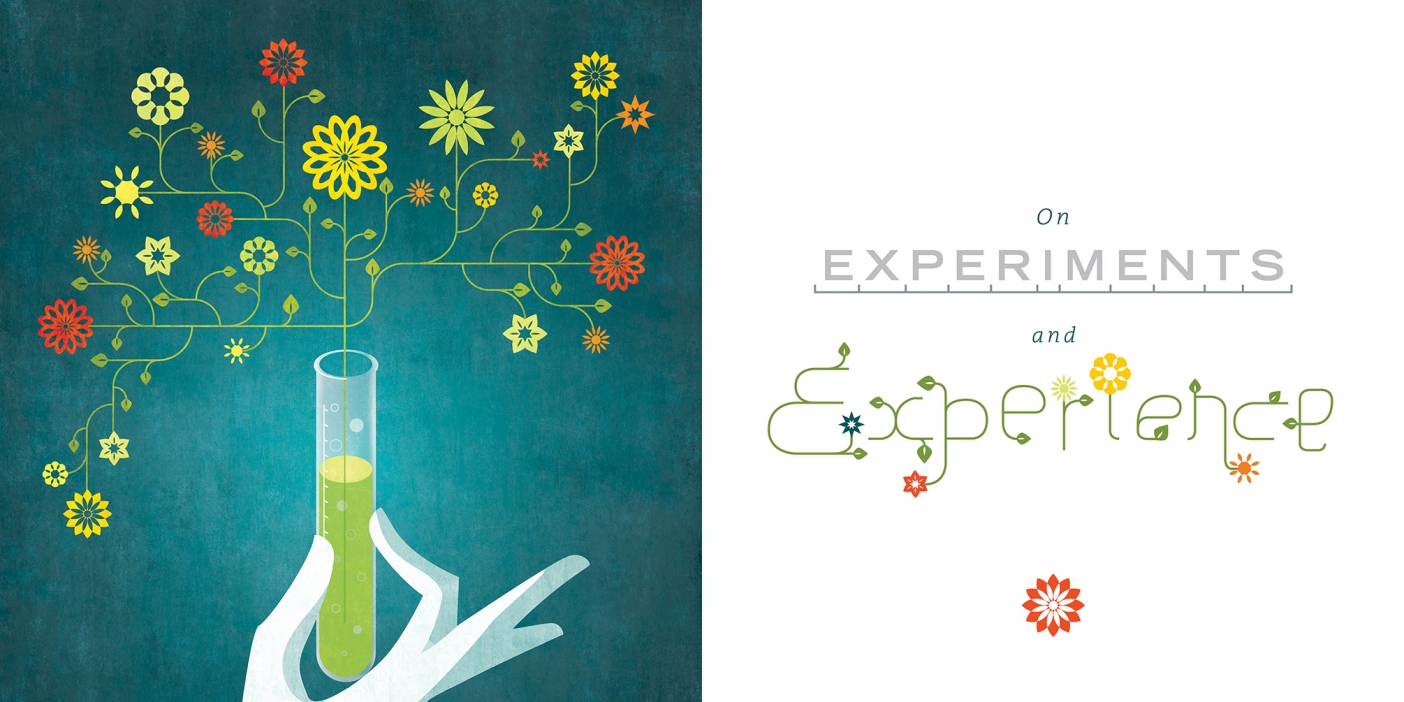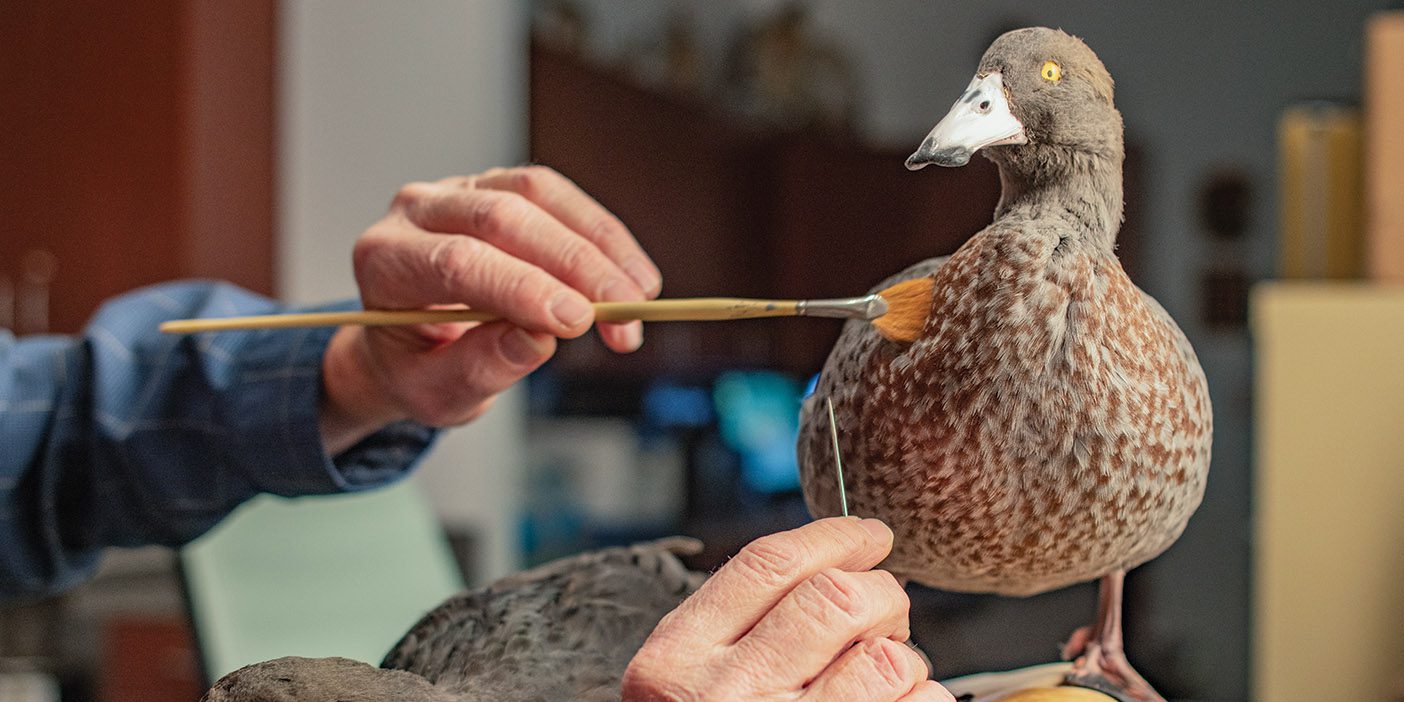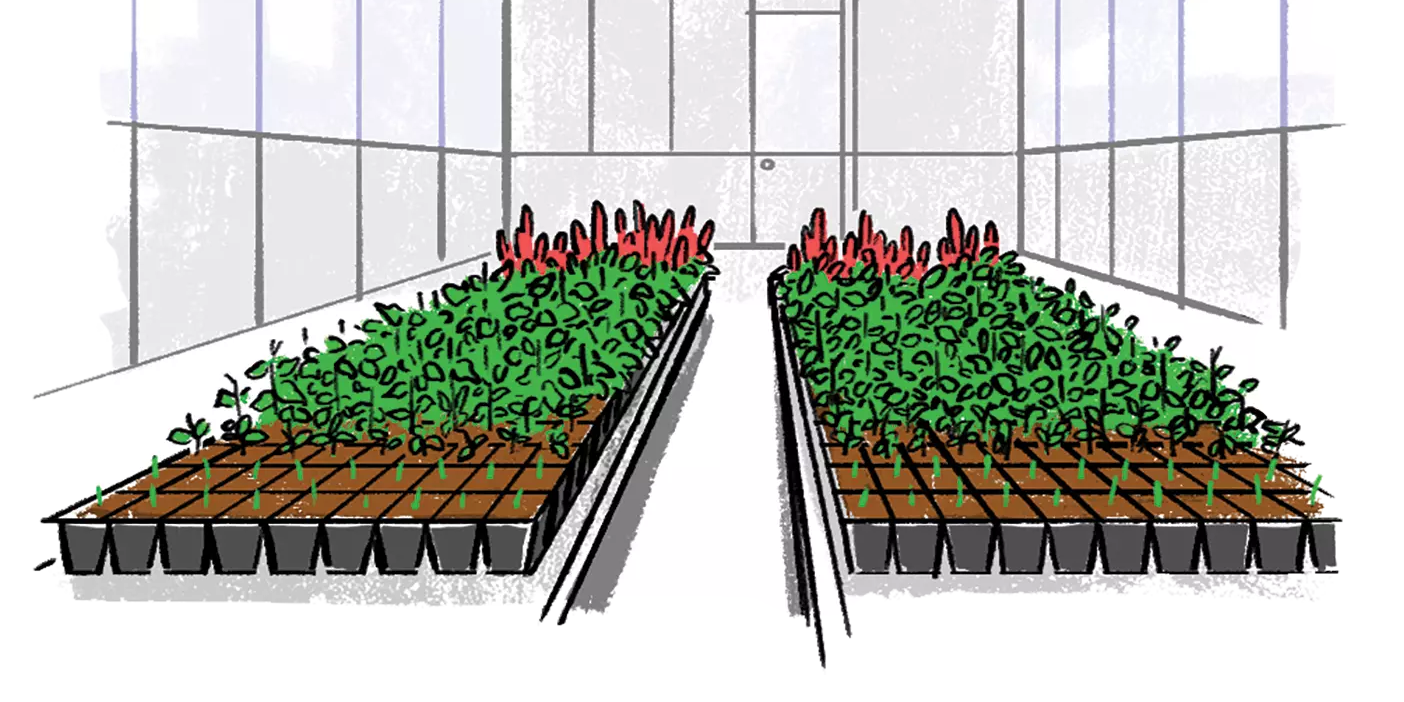A student-designed filter is making murky waters drinkable.

On a cold February morning, Corry M. Cloward (BS ’97) gathered with five engineering students around the south-of-campus botany pond. He pulled out a crystal-clear stemware glass—and filled it to the brim with water he’d drawn from the duck pond. The only thing between his glass and the pond was a filter the students had created.
“Either you trust the technology, or you don’t,” he said, smiling at his stunned students. He tilted the glass and took a swig.
“It tasted like spring water,” Cloward remembers. And he wasn’t surprised: Cloward, president at a Provo water-engineering company, had spent months coaching the BYU capstone team as it researched technologies to filter out bacteria and viruses. The project sponsor—The Church of Jesus Christ of Latter-day Saints—asked the students to create a portable filter that could be manufactured affordably and locally in Pakistan, where about 30 percent of diseases are caused by pathogens in drinking water.
And where better in Provo to test the resulting pump-and-filter system than BYU’s “fowl-est” water?
“We figured, ‘Okay, if we can clean this up, we can clean anything,’” says Cloward. “We ran that muddy, gross water” through the filter—and it came out sparkling clear, and each student eventually took a drink. Afterward, they tested the pond water, both pre- and post-filtration. The yellow-tinted unfiltered water teemed with E. coli and other coliform bacteria (read: duck poop), along with other unsavory germs. The filtered water? Clear and pure.
“That was just mind-blowing,” says capstone team member Spencer A. Stoltz (BS ’22). “It was really satisfying to see.”
The team had spent months researching filters and materials that would be both effective and easy to assemble and use in Pakistan. Their solution involved combining layers of filtration—the first layer trapping the largest particles, the last an ultrafilter that catches particles down to 0.02 microns. These ultrafilters, says Stoltz, “get super dirty, super fast” when tackling high volumes of dirty water. Layering the filters “prevents needing to clean out the ultra-filter all the time.”
Their design is already making a difference in Pakistan, where the Church has purchased and installed 15 filters.
“It just goes back to ‘Enter to learn; go forth to serve,’” says Stoltz. “Finding ways to use your knowledge to serve inspires you to keep doing it.”












